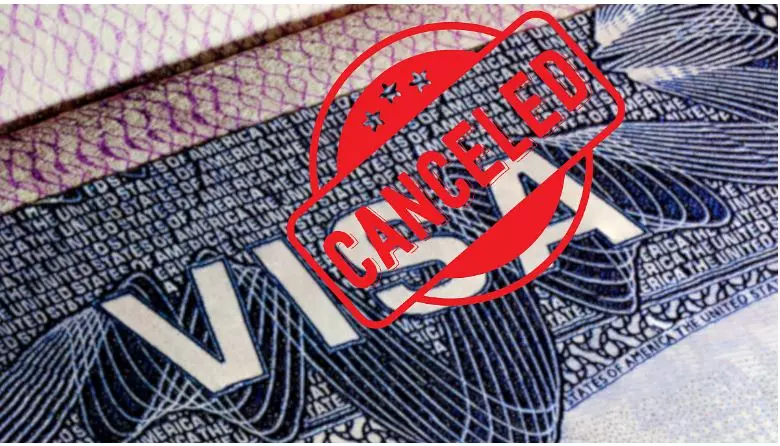
How Indian students can survive US visa cancellation through legal means
text_fieldsAs the intensified scrutiny in US immigration affects international students, particularly Indian students, who make up the major chunk of international students in the US and whose visas may be revoked even for minor infractions, it is imperative to know what the US procedures are for surviving a potential deportation. If they follow a defined legal course, it is possible for a student to challenge the visa cancellation rather than opt for immediate self-deportation.
According to immigration experts, students whose SEVIS records have been terminated can initiate removal proceedings to remain in the country and contest the revocation, with the right to legal representation and the opportunity to challenge the government’s evidence.
Although reinstatement through the US Citizenship and Immigration Services (USCIS) is an option, it is considered slow, uncertain, and costly, as immigration judges have no authority to review a denial. During this period, students are barred from working, interning, or participating in any form of academic training.
This guidance has become relevant as a growing number of Indian students face deportation threats due to the cancellation of student visas—often for minor infractions such as shoplifting or traffic violations. Many students are unaware that leaving the US immediately is not the only option, and legal avenues do exist, though they require prompt action and informed decisions.
The crackdown has intensified in recent months, with visa revocations reported even at prestigious institutions such as Stanford, Harvard, and Arizona State University. Internal audits at these universities have revealed hundreds of silent cancellations, prompting institutions to refer affected students to legal support services and to raise concerns with federal authorities. In one such instance, Stanford reported six of its students had their visas cancelled, while Arizona State disclosed a far higher number, with around 50 international students affected.
Indian students, who now form the largest international student group in the US, are particularly vulnerable under the current climate. According to the Open Doors Report, the US hosted over 1.1 million international students in 2023–24, with Indian students overtaking Chinese students by November 2024. Despite this, approval rates for Indian student visas dropped by 34 percent in FY 2024 compared to the previous year.
Students typically arrive on F-1 visas for academic programmes, M-1 visas for vocational training, or J-1 visas for exchange programmes. The application process requires completion of the DS-160 form, payment of the SEVIS fee, and an in-person visa interview. However, recent policy changes—such as the introduction of AI-based social media surveillance under Executive Orders 14161 and 14188—have added new layers of scrutiny, contributing to arbitrary cancellations and delays.
With over 300 student visa revocations recorded by March 2024, educational institutions are developing response protocols and advising students to carry immigration documentation at all times. Legal experts recommend that students regularly check the email addresses linked to their visa applications for updates, maintain detailed academic records, and avoid international travel, which may trigger further screening or complications at the port of entry.
The USCIS process of reinstating SEVIS records is being discouraged, as it is lengthy, requires the applicant to admit to a violation, and offers no opportunity for employment or academic engagement during the review period. Moreover, success rates remain low and denials are not subject to judicial review.


















